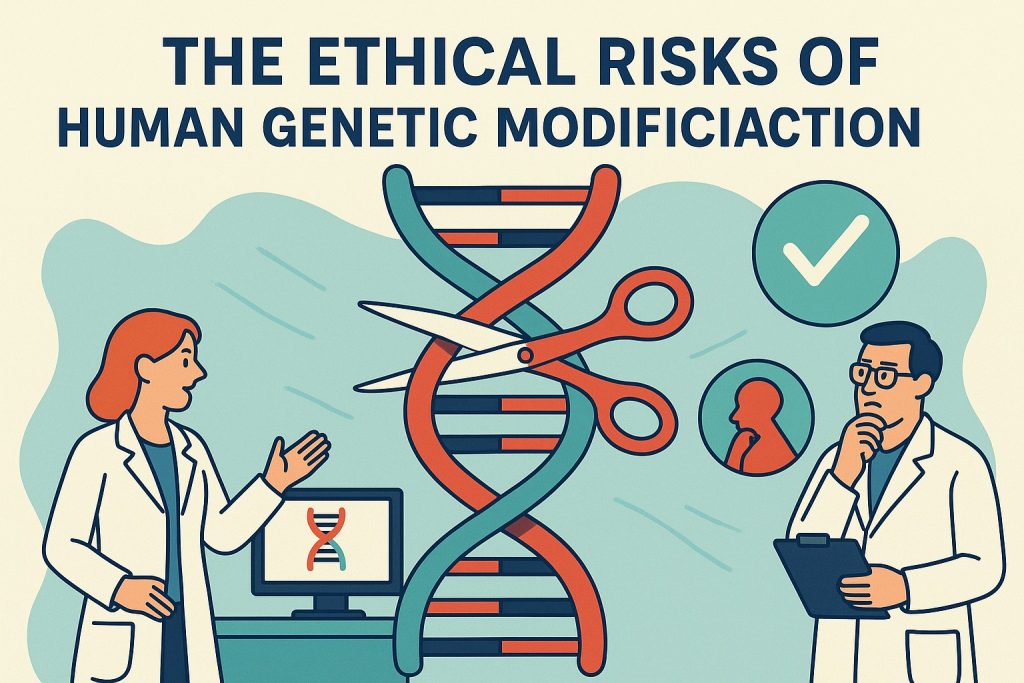Human genetic modification — the ability to alter the DNA of embryos or living individuals — is one of the most powerful and controversial frontiers in modern science. With technologies like CRISPR-Cas9, we now have the tools to edit genes with increasing precision.
But as science advances faster than regulation, serious ethical questions arise. Are we prepared to decide which genes should be changed — and who gets to decide?
What Is Genetic Modification?
Genetic modification involves editing or replacing specific sequences of DNA to influence traits like disease resistance, eye color, or even intelligence. There are two main types:
- Somatic gene editing: changes affect only the individual and are not passed to offspring.
- Germline editing: changes are heritable and passed to future generations.
While somatic therapies are already being tested to treat conditions like sickle cell disease and cancer, germline editing remains highly controversial.
Potential Benefits
- Eliminating genetic diseases like cystic fibrosis or Huntington’s
- Boosting immunity to certain viruses
- Personalized medicine based on a person’s unique genetic profile
- Enhancing fertility treatments
These advances could prevent suffering and improve health across generations.
The Ethical Risks
1. “Designer Babies”
The idea of selecting traits like intelligence, height, or athleticism raises fears of genetic class divisions — where only the wealthy can afford enhancements.
2. Loss of Genetic Diversity
If certain traits are favored or removed, we risk reducing the genetic variability needed for a healthy, adaptable population.
3. Informed Consent
Embryos cannot consent to being genetically altered, yet the effects of these edits will define their lives — and possibly their descendants’.
4. Unintended Consequences
We don’t fully understand the complexity of the genome. A change meant to reduce disease risk could have unforeseen effects on other traits or health systems.
5. Social Inequality
Access to gene-editing technologies could widen the gap between those who can afford enhancements and those who cannot, leading to a new form of discrimination.
Where Do We Draw the Line?
Global scientific and ethical communities are calling for international frameworks and moratoriums on germline editing until consensus is reached. Some countries ban it entirely, while others allow it for research only.
Until science, society, and policy align, the safest path is cautious progress, with strong oversight and public dialogue.
Glossary
- CRISPR-Cas9 — a tool used for precise editing of DNA sequences
- Germline editing — genetic modification that can be inherited by future generations
- Somatic editing — genetic changes that only affect the treated individual


